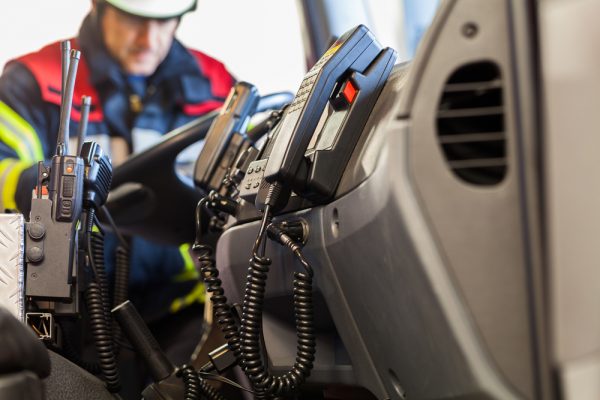Author: IAFF Staff
January 31, 2018
According to the Substance Abuse and Mental Health Services Administration (SAMHSA), approximately 23.5 million Americans are addicted to drugs and alcohol. While rates of addiction among fire fighters and paramedics are unknown, we do know that this population of first responders is uniquely susceptible to using substances to cope with the stressful and demanding nature of their jobs.

As a fire fighter/paramedic, you have likely seen the grave consequences of addiction up close while responding to overdose calls or tragic automobile accidents. Or, perhaps addiction has touched your own life or that of your spouse or crew member.
While addiction has devastated countless lives, families, communities and careers, it does not have to be a death sentence. Rather, an addiction is a medical condition that can be treated and managed. While no path to recovery looks the same, most include a combination of these time-tested strategies:
- Detox. For some, an inpatient clinically managed detox is required to treat life- threatening withdrawal symptoms, as is the case with alcohol dependence. Detox is not only effective; for some, it’s the only safe means to start the recovery process.
- Residential Treatment. For some, removing oneself from a toxic environment or access to substances can only be achieved by living at treatment center for 28 days or longer. Residential treatment provides an excellent opportunity to focus on recovery with minimal distractions.
- Outpatient Treatment. Regardless of the severity of one’s addiction, outpatient treatment is almost always recommended. Outpatient treatment is offered at various levels of care, is usually group-based, and provides a combination of psycho-education, relapse prevention and drug and alcohol screening.
- AA/NA. 12-step meetings are free, widely accessible and an indispensable tool for anyone in recovery. AA and NA is built on a series of 12 spiritual principles, which strongly emphasize personal and peer accountability.
- Smart Recovery. An alternative to traditional 12-step meetings, SMART Recovery meetings teach individuals how to change self-defeating thinking, emotions and actions that fuel compulsive behavior, including drug and alcohol use. SMART meetings are available in person, online or over the phone
- Peer Mentorship. Many individuals in recovery benefit from having an individual mentor to help keep them on track with all recovery behaviors. This could be a traditional AA/ NA sponsor who is in recovery themselves, or a trained peer from your department’s Peer Support Team.
- Medication-Assisted Treatment (MAT). While not for everyone, medication-assisted treatment is the use of medications in combination with counseling and behavioral therapies for the treatment of addiction. When used under the careful supervision of a physician, medications such as Antabuse, suboxone and buprenorphine can play an essential role in managing cravings of alcohol, heroin and other opioids.
- Coping Skills. Copings skills are specific behaviors or strategies to manage uncomfortable feelings or situations that triggers cravings to use. Coping skills vary widely person to person and might include exercise, positive self-talk, yoga, mindfulness, cleaning, drawing, writing or talking to a friend.
- Get Mental Health Treatment. For anyone struggling with an underlying mood or anxiety disorder, managing addiction will be extremely challenging without proper psychological help. This could be individual or group therapy, medication or a combination of treatment options with a licensed mental healthcare provider.
- Plan Ahead with People, Places and Things. Regardless of one’s stage of recovery, staying sober is about avoiding people, places and things that make you want to use. This means having a working daily knowledge of your triggers and how to manage them.
There have never been so many effective and accessible strategies for managing addiction as there are today. If you are struggling with a drug or alcohol problem, help can’t wait. Talk to a trusted peer, chaplain, spouse or counselor and ask about what resources are available.
If you’re not sure where to turn, call The IAFF Center of Excellence today at (855) 999-9845 today for a no-obligation, free and confidential screening. The IAFF Center of Excellence is a 64-bed comprehensive treatment center designed exclusively for IAFF members struggling with addiction, PTSD and other co-occurring mental health problems.
Medical Disclaimer: The IAFF Center of Excellence aims to improve the quality of life for people struggling with a substance use or mental health disorder with fact-based content about the nature of behavioral health conditions, treatment options and their related outcomes. We publish material that is researched, cited, edited and reviewed by licensed medical professionals. The information we provide is not intended to be a substitute for professional medical advice, diagnosis or treatment. It should not be used in place of the advice of your physician or other qualified healthcare provider.
